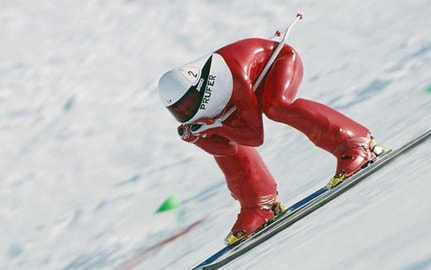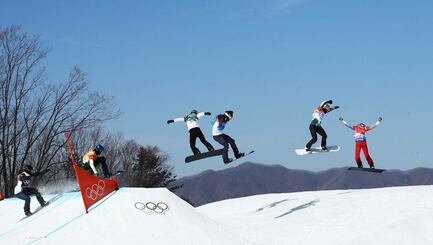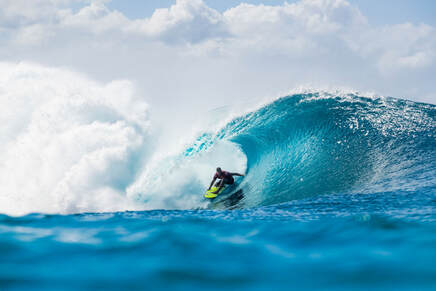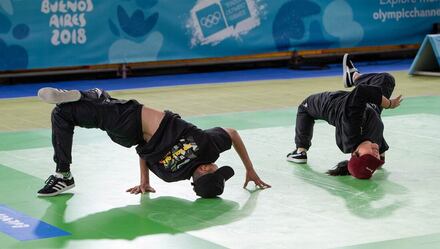Should An Old Way Showcase New Sports?
A Long History of Demonstration
Sports looking to win a coveted place on the Olympic sports program, and with it perceived precious validation as a sport that matters globally, used to have an opportunity at the Games as a 'demonstration sport', presented as a scheduled event but usually without official medals or records. Demonstration sports were first officially included alongside the main Olympic Games agenda at Stockholm 1912. Most Games editions through Barcelona 1992 had at least one demonstration sport.
While some Games chose events with particular local flavor (e.g. basque pelota at Barcelona 1992), the practice mostly served as sort of a testing ground for sports seeking official inclusion. Baseball was "demonstrated" five times before official inclusion in 1992 and for the next four editions. Taekwondo was demonstrated twice before its upgrade. Tennis, badminton, handball, volleyball, canoeing, and women's judo all were demonstration sports before their own inclusions in today's official summer program. On the winter side, curling, freestyle skiing, and short track speed skating all had their turn as demonstration sports.
Now, without a demonstration step, sports and event disciplines can become an official Olympic sport without any similar testing, or proof of appeal on an Olympic level. And combined with a new vision of "increasing its appeal to younger sports fans", this has meant new sports being seemingly suddenly added that may be jarring to Olympic purists.
Some changes have integrated well: beach volleyball (officially added at Atlanta 1996) and rugby sevens (Rio 2016) have been marked successes. Snowboarding (Nagano 1998) is a massive hit today, despite initial concern, proving any purists' hesitations wrong.
Tokyo 2020 will take the 'youth appeal' approach up a notch, particularly with the introduction of surfing, skateboarding, sport climbing, BMX freestyle, and 3x3 basketball. Note, karate, a longstanding worldwide sport, also makes its debut.
3x3 basketball, though? Not so much history - the first international competition was only in 2009. Now, this is where the IOC might seem to be rushing things a bit.
Breaking?
Another particularly curious choice is the addition of breakdancing, er breaking, for Paris 2024. Despite decades of judged official competition, breaking has appeared only once at the Youth Olympics, in 2018, but never at a Commonwealth Games, Pan American Games, Asian Games or African Games.
Bring Back Demonstrations
With the IOC's new 'core sport' strategy, where any new sport can conceivably be on the chopping block ahead of the next Games, it's not even certain that 3x3 basketball, breaking, or any other new sport, will continue on the schedule past one or two Games editions. In fact, karate has already been told that it will not appear at Paris 2024, nor will baseball/softball (brought back for Tokyo 2020 after 12 years).
Here's where the old demonstration sport status may be helpful. Karatekas will compete in Tokyo knowing there won't be a chance defend a title, or to just improve, in Paris. And what if breaking isn't a popular breakthrough, and not invited to Los Angeles 2028? Entering with a label as a 'demonstration sport' once or maybe twice before becoming official seems a more structured manner of adding sports that are less internationally tested. It may be just seen as semantics on whether a 'demonstration' or not, but the label lends a truer testing quality to these sports' presence than today's core sport strategy does.
Olympic inclusion brings precious validation as a global sport. Sports see Olympic recognition as key to audience, participation, and financial growth. As pro surfer Layne Beachley said when surfing was added to the 2020 program, "This reinforces...continued nurturing and future success of our athletes". When a new sport is seen as legitimized ahead of others, it's frequently frustrating.
New sports like 3x3 basketball and breaking should earn their way onto the program through proven measurements of senior-level popularity and organization, and a step as a demonstration sport can be a much-valued part of that process. Established sports, too, like karate may see value in a demonstration status rather than being in one Games and out the next, even before they've started.
What was really wrong with demonstration sports in the first place?






 RSS Feed
RSS Feed